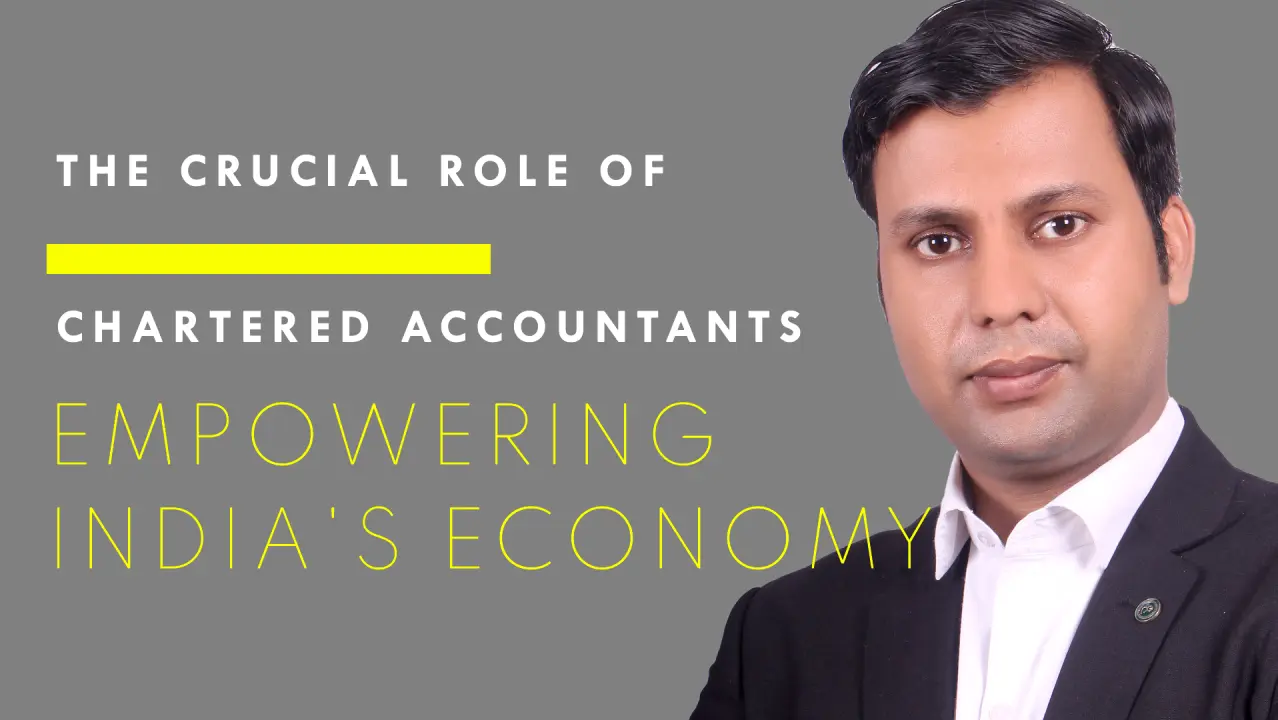Introduction:
Chartered Accountants (CAs) play a pivotal role in shaping India’s economic landscape, contributing significantly to its growth and development. In this speech, we’ll explore the vital responsibilities of CAs in bolstering India’s economic strength and the government’s initiatives to support their endeavors.
Embracing Technological Advancements:
In today’s fast-paced business environment, technology-driven competency is imperative for CAs to remain relevant and provide enhanced services to their clients. Embracing technological advancements enables CAs to navigate the complexities of modern businesses effectively.
Government Initiatives for Tax Compliance:
The government is committed to simplifying tax compliance processes and resolving disputes through initiatives such as faceless assessment and jurisdictional clarification. These measures streamline tax procedures, fostering a conducive environment for businesses to thrive.
Promoting Business Formalization:
Formalizing businesses is critical to integrating them into the formal economy, granting access to benefits, and fostering economic growth. By encouraging businesses to operate within the formal system, India can harness their potential to drive prosperity.
Opportunities in International Financial Services:
The establishment of the International Financial Services Center in India presents opportunities for global financial institutions and professionals to operate in a favorable environment. This mutually beneficial arrangement strengthens India’s position in the global economy while facilitating international collaborations.
Investing in Skill Development:
Empowering the youth through skill development initiatives and supporting technical institutions are essential for fostering innovation and enhancing productivity in India. By investing in human capital, India can unlock its full potential and propel economic growth.
Combatting Cybercrime:
Acknowledging the challenges posed by cybercrime, the government is actively enforcing regulations and implementing measures to safeguard digital transactions. Ensuring the security of digital transactions is paramount for fostering trust and confidence in India’s digital economy.
Conclusion:
Chartered Accountants are integral to India’s economic fabric, driving growth, and fostering prosperity. By embracing technological advancements, promoting business formalization, and investing in skill development, India can realize its vision of becoming a global economic powerhouse. The government’s commitment to simplifying tax compliance and combatting cybercrime further reinforces its support for India’s economic growth trajectory. Together, we can build a robust and resilient economy that benefits all stakeholders.
FAQs:
1. How do Chartered Accountants contribute to India’s economic growth?
– Chartered Accountants play a crucial role in shaping India’s economic landscape by providing financial expertise, ensuring compliance with regulations, and facilitating business growth through strategic financial management.
2. What are the key government initiatives to support Chartered Accountants?
– The government has introduced measures such as faceless assessment and jurisdictional clarification to simplify tax compliance processes and resolve disputes efficiently. Additionally, initiatives to promote business formalization and skill development further support the endeavors of Chartered Accountants.
3. How does technology impact the role of Chartered Accountants?
– Embracing technological advancements enables Chartered Accountants to enhance their service offerings, streamline processes, and adapt to the evolving needs of modern businesses. Technology-driven competency is essential for CAs to remain competitive in today’s dynamic business environment.
4. What opportunities does the International Financial Services Center in India offer?
– The International Financial Services Center provides a conducive environment for global financial institutions and professionals to operate, fostering international collaborations and contributing to India’s position in the global economy.
5. How is the government addressing cybersecurity concerns in the digital economy?
– The government is actively enforcing regulations and implementing measures to combat cybercrime and safeguard digital transactions. Ensuring the security of digital transactions is essential for fostering trust and confidence in India’s digital economy.
6. How does formalization of businesses contribute to India’s economic growth?
– Formalizing businesses integrates them into the formal economy, granting access to benefits and opportunities for growth. By encouraging businesses to operate within the formal system, India can harness their potential to drive economic prosperity.
7. What role does skill development play in India’s economic development?
– Skill development initiatives empower the youth, promote innovation, and enhance productivity in India. By investing in human capital and supporting technical institutions, India can unlock its full potential and drive sustainable economic growth.
CA GPT: ChatGPT Specially Made for Accountants by Suvit!
CA GPT is a large language model (LLM) chatbot developed...
Read MorePersonal Journey to Choosing CA as a Career (Real Story)
Fate decides who comes in your life; your heart decides...
Read MoreHow to File e-Form 15CA and 15CB: A Comprehensive Guide
Form 15CA: This is a declaration by the person remitting...
Read MoreCA is the 6th Toughest Exam in The World.
The exam has two parts: Professional Practice and Personal Proficiency,...
Read More








